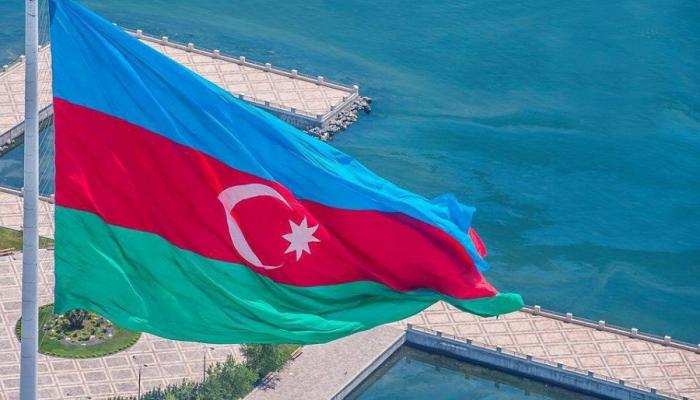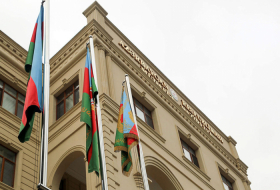On March 21, Armen Grigoryan, Armenia’s Secretary of the Security Council, announced that Armenia’s Prime Minister Nikol Pashinyan would meet with Ursula von der Leyen, President of the European Commission, and Antony Blinken, Secretary of State of the United States, in a trilateral format on April 5. According to the Armenian official, the meeting is aimed to increase Armenia’s resilience. If this meeting occurs, it will mark a significant milestone in Armenia’s foreign policy, underscoring its efforts to depart from Russia’s orbit and a shift towards seeking security support from Western nations. The initial announcement regarding the meeting was made by von der Leyen on October 5, 2023, during the European Political Community (EPC) summit in Granada, Spain. Given the highly complex geopolitical dynamics of the South Caucasus and the context of the Armenia-Azerbaijan peace process, this meeting is closely followed in Baku, Moscow, and the capitals of other neighboring states.
There are significant concerns that the upcoming meeting could exacerbate geopolitical tensions in the South Caucasus, thereby jeopardizing regional peace and security. This event is perceived as an extension of the ongoing geopolitical competition between Russia and the West into the South Caucasus, posing substantial security risks to the entire region. Such developments are widely viewed as yet another instance of the adventurous foreign policy pursued by Prime Minister Nikol Pashinyan’s government in Armenia, which has been characterized by populist rhetoric and actions. Particularly notable is the impact of Pashinyan’s policies on the Armenian people, as evidenced by his populist statements – such as his assertion in August 2019 that “Karabakh is Armenia. Full stop” – and strategic moves, including the declaration of a “new war for new territories” strategy, which directly contributed to the outbreak of the Second Karabakh War.
He manipulated the Armenian populace with impractical aspirations. For instance, at the onset of his tenure, Pashinyan pledged to increase Armenia’s population from less than 3 million to 5 million by 2050, despite a recent demographic report by the United Nations projecting a decrease to 2,039,000 by 2100. Additionally, he set unrealistic goals such as winning the FIFA World Cup, achieving a 15-fold increase in GDP, establishing at least five technology companies valued at over $10 billion each, attaining a top-twenty ranking in army combat readiness, and reaching the top ten globally in intelligence capabilities. These pledges were made to a nation already grappling with economic decline and demographic challenges.
Meanwhile, the South Caucasus has witnessed significant transformations, contrary to the promises made by Pashinyan to his nation. Pashinyan persists in pursuing imprudent actions, disregarding the delicate regional power dynamics, the tense geopolitical landscape shaped by Russia and Iran, and the potential risks his policies pose not only to Armenia but to the entire region. As an Armenian expert asserted, Pashinyan is taking a risky and adventurous approach by antagonizing Russia without securing any realistic security guarantees from the West. Previously, only the Armenian people bore the brunt of Pashinyan’s adventurous policies; however, Azerbaijanis and Georgians may also be adversely affected if he continues recklessly in his foreign policy pursuits.
Pashinyan’s shift towards the West at the cost of his country’s relations with Russia puts Azerbaijan in an uncomfortable position as it creates expectations in the Western capitals for a similar move from the Azerbaijani government or support to the actions of the Armenian leader. On the contrary, Azerbaijan seeks to maintain its traditional balanced approach in foreign policy and develop friendly relations with all major powers. Today Azerbaijan has become a major contributor to Europe’s energy security exporting natural gas to six European countries and working on the projects to export also to Ukraine and Moldova in the near future. Azerbaijan’s contributions to Europe’s energy security have been highly appreciated by the European Commission in the context of the EU’s efforts to put an end to imports from Russia.
Azerbaijan has been also a close partner of the NATO in its operations in Kosova and Afghanistan. This was commended by Jens Stoltenberg, Secretary General of NATO, in his visit to Baku on March 17-18. “We appreciate very much your contribution to our KFOR mission in Kosovo, but also, of course, your presidency and your contributions to our mission in Afghanistan over many years were extremely important. You are absolutely right, one of the last troops to leave Afghanistan were actually Azerbaijani troops. Because you were responsible for the protection of the airport, which was a key task in the evacuation of the NATO presence in Afghanistan”, said Stoltenberg in his press conference with the Azerbaijani President Ilham Aliyev.
Azerbaijan strives to maintain these friendly relations with the country’s Western partners and, likewise, with other major powers including Russia and China. Located in the highly precarious geography neighboring Russia in the North and Iran in the South, Azerbaijan is compelled to cautiously consider geopolitical realities and balance of power in the region. The tragic events in Ukraine since March 2014 and the war in Georgia earlier in 2008 have underscored that the power balance in this region does not favor making idealistic foreign policy moves without considering the existing geopolitical realities. Given the escalating great power rivalries, it is now more crucial than ever for the South Caucasus countries to recognize and factor in this reality.
AzVision.az
More about:
















































